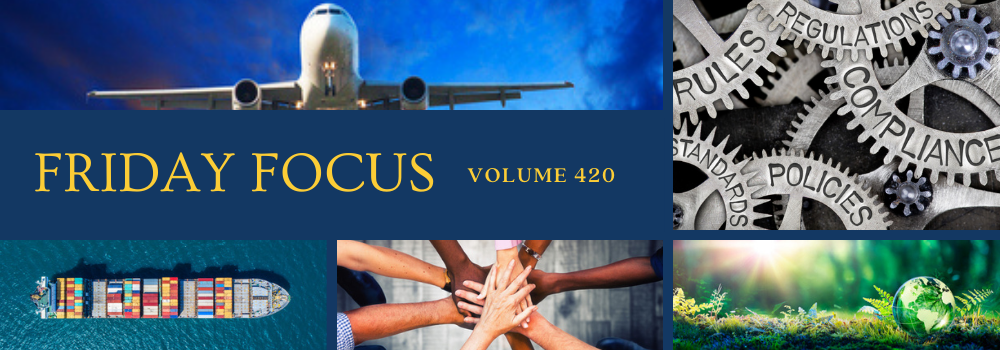Event Video: The Global Outlook: Navigating Trade and Investment Trends in 2025
On Tuesday, April 8, WITA International hosted an in-person panel at the 55th Annual World Trade Centers Association (WTCA) Global Business Forum (GBF) in Marseille, France.
The panel updated attendees about developments in international trade policy and geopolitics. Panelists offered insights on emerging challenges and opportunities shaping the global economy in the year ahead, and the potential impact of those policies on governments, supply chains, businesses and investors.
Featured Speakers:
Remarks by Angela Ellard, Deputy Director General, World Trade Organization
Discussion with:
Ed Allison-Wright, World Trade Center Gibraltar
Iana Dreyer, Founder and Editor of Borderlex
Lionel C. Johnson, President of the Pacific Pension & Investment Institute
Penny Naas, Lead GMF Allied Strategic Competitiveness, German Marshall Fund of the United States
Moderator: Kenneth Levinson, Chief Executive Officer, Washington International Trade Association
Note: this in-person panel discussion took place on April 8, one day before President Trump paused his reciprocal tariffs, so some of the discussion points may have been overtaken by events.
04/08/2025 | WITA International
Tariffs: Estimating the Economic Impact of the 2025 Measures and Proposals
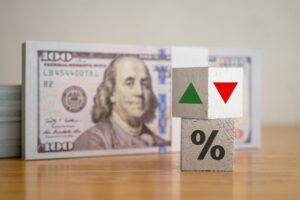
Tariffs are taxes imposed by a government on imported goods, typically calculated as a percentage of the import’s value (known as an ad valorem tax). Governments use tariffs for various purposes, such as raising revenue, protecting domestic industries from foreign competition and influencing international trade patterns. By increasing the cost of imported products, tariffs encourage consumers to shift toward domestically produced goods, thus supporting local businesses and potentially stimulating domestic economic activity.
However, the overall impact of tariffs depends critically on how much of this cost increase is passed along to domestic consumers and producers, a concept known as pass-through. Empirical research has found that the pass-through rate is generally high (often near 100 percent), meaning that the burden of tariffs typically falls on domestic consumers and firms rather than foreign exporters.
The economic significance of tariffs is underscored by recent data from the First Quarter 2025 CFO Survey. More than 30 percent of surveyed firms identify trade and tariffs as their most pressing business concern, up sharply from just 8.3 percent in the previous quarter. This rapid rise highlights firms’ heightened sensitivity to tariff-related disruptions, reflecting widespread concern among business leaders about the potential economic consequences of recent tariff proposals.
In this article, we first provide historical context on U.S. tariff policy to frame the significance of the proposed tariff changes for 2025. Next, we analyze how tariffs impact producers differently across industries due to varying reliance on imported inputs. Finally, we examine the specific implications of recent tariff proposals for all counties in the U.S.
A Bit of History on Tariffs
Historically, the U.S. relied heavily on tariffs — often exceeding 30 percent — as its primary source of federal revenue from the nation’s founding until the introduction of income taxes in 1913.
During this early period, these high tariffs also served to protect emerging industries through a strategy called import substitution. After World War II, international trade agreements like the General Agreement on Tariffs and Trade significantly reduced tariffs globally from an average of around 20 percent in 1947 to below 5 percent following the Uruguay Round in 1994. The globalization movement of the 1980s and 1990s further accelerated tariff reductions, culminating in the establishment of the World Trade Organization (WTO) in 1995. Since then, tariffs among WTO member countries have generally remained around 2.5 percent, reinforcing greater global economic interconnectedness.
Read the Full Economic Brief Here
04/02/2025 | Marina Azzimonti, Zach Edwards, Sonya Ravindranath Waddell & Acacia Wyckoff
| Federal Reserve Bank of Richmond
We Never Had Free Trade
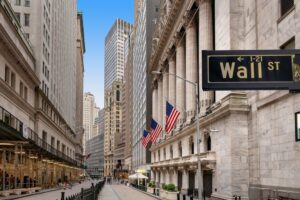
On April 2, as he imposed exorbitant tariffs that triggered a stock market collapse, Donald Trump said this: “For decades, our country has been looted, pillaged, raped, and plundered by nations near and far, both friend and foe alike. American steelworkers, autoworkers, farmers, and skilled craftsmen—they really suffered gravely. They watched in anguish as foreign leaders have stolen our jobs, foreign cheaters have ransacked our factories, and foreign scavengers have torn apart our once beautiful American dream.”
Trump’s tariffs, which are more about indiscriminate bullying than trade policy, set off reams of simplistic commentary praising the glory days of free trade. Yet we would do well to remember our history, or we could end up cherishing the kind of corporate globalization whose backlash paved the way for Trump in the first place.
The commentary has compared the recent stock market free fall to the abrupt market crash in the early days of the pandemic. But that’s the wrong comparison. The right comparison is to the last time that the stock market and the economy collapsed due to perverse policies. That would be the collapse of 2008, when the market lost 54 percent of its value.
Those policies included the deliberate wreckage of financial regulation so that insiders could get richer, as well as hyper-globalization. The architect of those policies was Robert Rubin with an assist from his deputy Larry Summers, and it’s instructive to compare Rubin with Trump.
As grifters, Donald Trump and Robert Rubin are two variations on the same theme. Rubin reaped immense personal benefits from financial deregulation and corporate globalization. Moving from Goldman Sachs to the White House to the Treasury and then to Citigroup, he epitomized the self-interested revolving door between Washington and Wall Street. Rubin did it with great politesse, always cloaking his maneuvers as public-mindedness. Trump is more coarse and more crude; the personal grifting is shameless and transparent.
Both versions corrupt democracy. We shouldn’t have to choose between these two forms of the private use of public office. Let’s see which produces more collateral damage for the economy.
04/08/2025 | Robert Kuttner | The American Prospect
Trump Trade Negotiations: Embrace Strategic Trade, Not Autarky
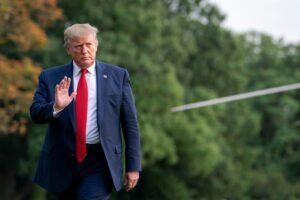
U.S. trade policy lacks nuance and strategy. Free traders want free trade for everything. Protectionists want protection for everything. Free traders are happy for other countries to subsidize their exports, and if those countries are dumb enough to subsidize American consumption, let ‘em. Protectionists, meanwhile, get riled up if any imports are subsidized.
It’s time to apply a strategic lens to U.S. trade policy. If nations want to subsidize their exports of commodity goods like minerals, lumber, and dairy products—have at it. We’ll take the discount. In contrast, if they want to subsidize exports of advanced goods like semiconductors, steel, and autos—no way. These are predatory moves designed to destroy U.S. capabilities in critical industries permanently.
This Manichaeism runs deep. During the Obama administration, I met with a top White House economist. He had just come from a high-level meeting where an even more senior economist successfully argued that if China wanted to dump solar panels (i.e., sell below costs), they were the dumb ones. The United States should allow it because our consumers would benefit. (That economist’s initials might have been L.S.) He advocated for this because he believed no industry was more important than any other. And so, we lost our solar panel industry.
Now we have a White House that decries all foreign export subsidies and sees all goods-producing industries as equally important.
Neither protectionists nor orthodox free traders fully grasp the essential political economy of international trade. This critical blind spot has profound consequences for policy. It is time to embrace a Hirschmann-oriented trade policy.
Albert O. Hirschmann, in his seminal work National Power and the Structure of Foreign Trade, articulated what many economists overlook: Trade creates power relationships and dependencies between nations that extend far beyond simple economic efficiency. Trade patterns shape geopolitical leverage, vulnerability, and autonomy in ways standard economic models simply cannot capture. And advanced industries play a key role in shaping that power.
04/16/2025 | Robert D. Atkinson | Information Technology & Innovation Foundation
Only Trump’s Tariffs Can Fix a Rigged Global Trading System
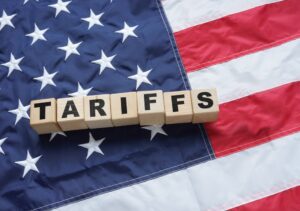
The international trade system is broken – and Donald Trump’s reciprocal tariff doctrine will fix it. This long-overdue restructuring will make both the US and global economies more resilient and prosperous by restoring fairness and balance to a system rigged against America.
For decades, under the biased rules of the World Trade Organisation, the US has faced systematically higher tariffs from its major trading partners and far more punitive non-tariff barriers.
The result is a national emergency that threatens our economic prosperity and national security.
At the heart of this crisis is a trade deficit in goods that has ballooned to more than $US1 trillion ($1.6 trillion) annually. The economic models of free trade, which predict that chronic trade imbalances will always be eliminated through price adjustments via exchange rates, are dead wrong.
The US cumulative trade deficits in goods from 1976 – the year chronic deficits began – to 2024 have transferred over $US20 trillion of American wealth into foreign hands.
That’s more than 60 per cent of US GDP in 2024. Foreign interests have taken over vast swaths of US farmland, housing, tech companies and even parts of our food supply.
A central driver of this one-sided trade is the WTO’s “most favoured nation” (MFN) rule, which requires member countries to apply the lowest tariff they offer to any one nation to all WTO members. America’s trading partners can maintain high, uniform tariffs across the board – with no incentive to negotiate fairer terms with the US.
04/08/2025 | Peter Navarro | Financial Review
WITA – We put the community in trade community.
Information about upcoming WITA and trade community events

